The design research
How can I design an applied game that helps people gain clarity on their end-of-life wishes? What types of game mechanics can best support constructive dialogues around an emotionally sensitive and socially complex subject?
How people die lives on in the memory of those who live on.
Dame Cicely Saunders
Applied games are increasingly being recognized as an important aid in social innovation for their potential to catalyze social change In her research, Jennifer aims to explore how an applied game designed with a co-iterative approach with subject experts can offer an innovative approach to improving the process of identifying and articulating one’s end-of-life wishes, a prerequisite often prescribed as the first step in all end-of-life (EOL) planning and advance care planning (ACP) activities.
Iterative Game Design
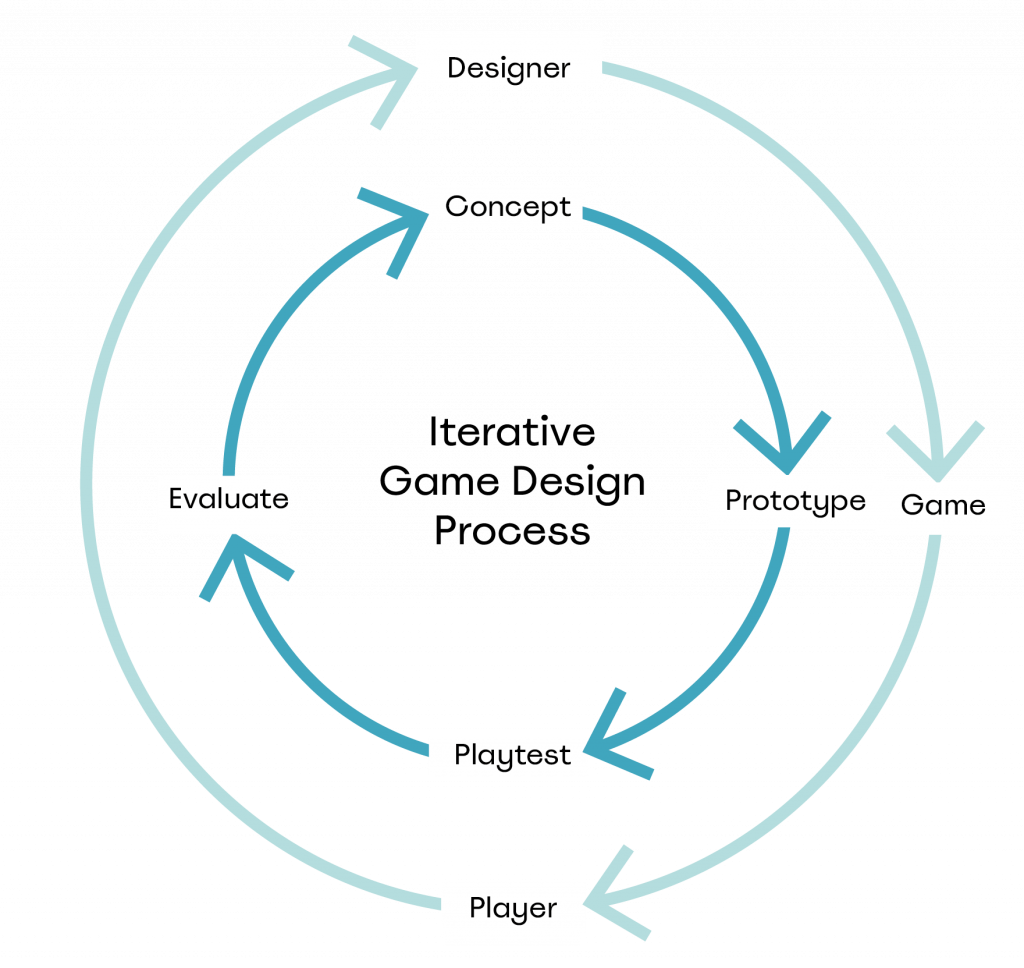
Her design process involved collaborations with deathcare workers, graduate student design researchers, and subject experts in both deathcare and game design over several design cycles encompassing exploratory, generative, and evaluative design research methods.
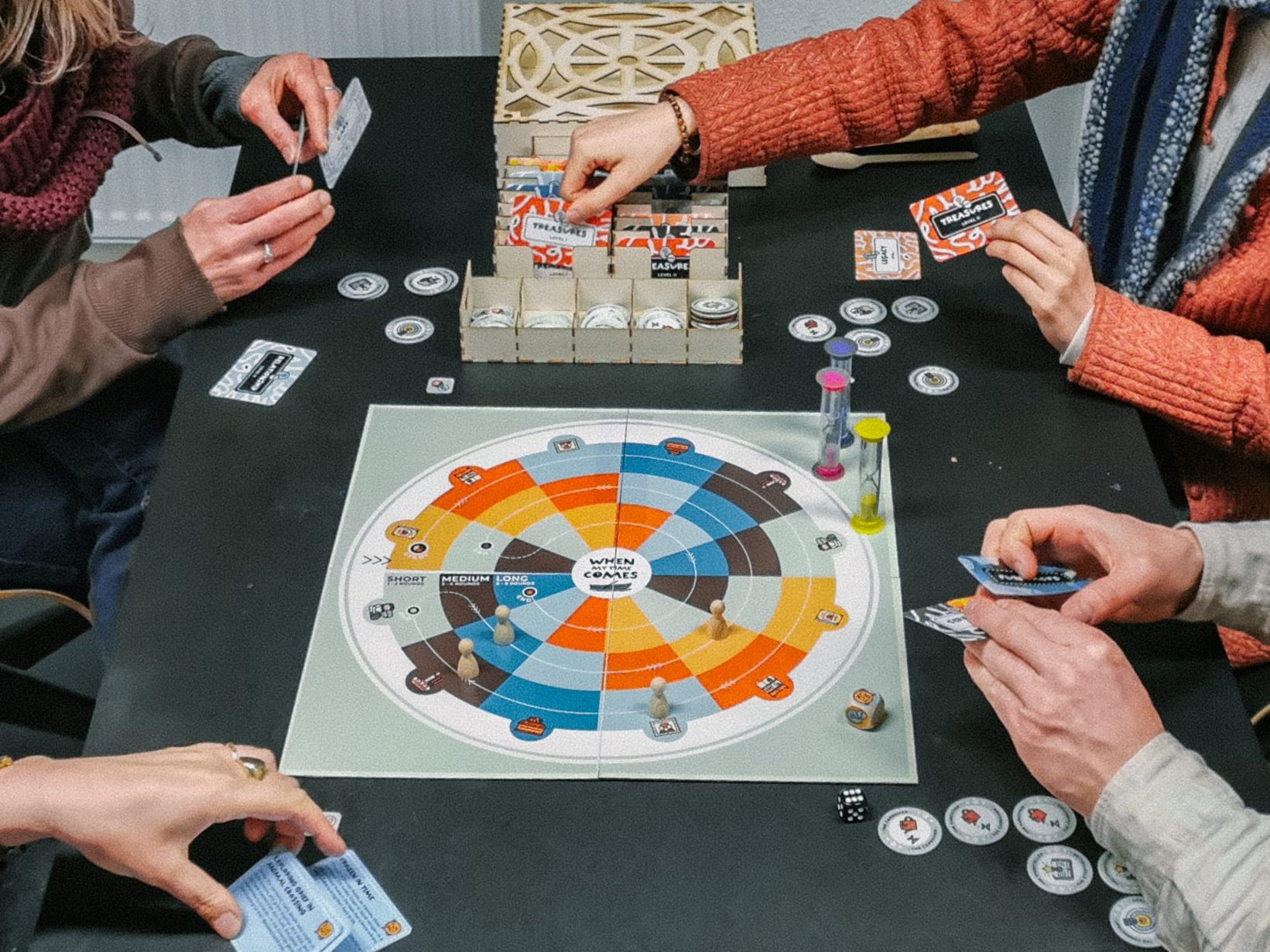
Taking a participatory approach to game design, Jennifer involved her audience, the deathcare workers, in three ways: (1) as testers (playtesting game prototypes), (2) as informants (contributing domain knowledge to game design through interviews and co-creation workshops), and (3) as users (engaging with the game in their professional contexts).
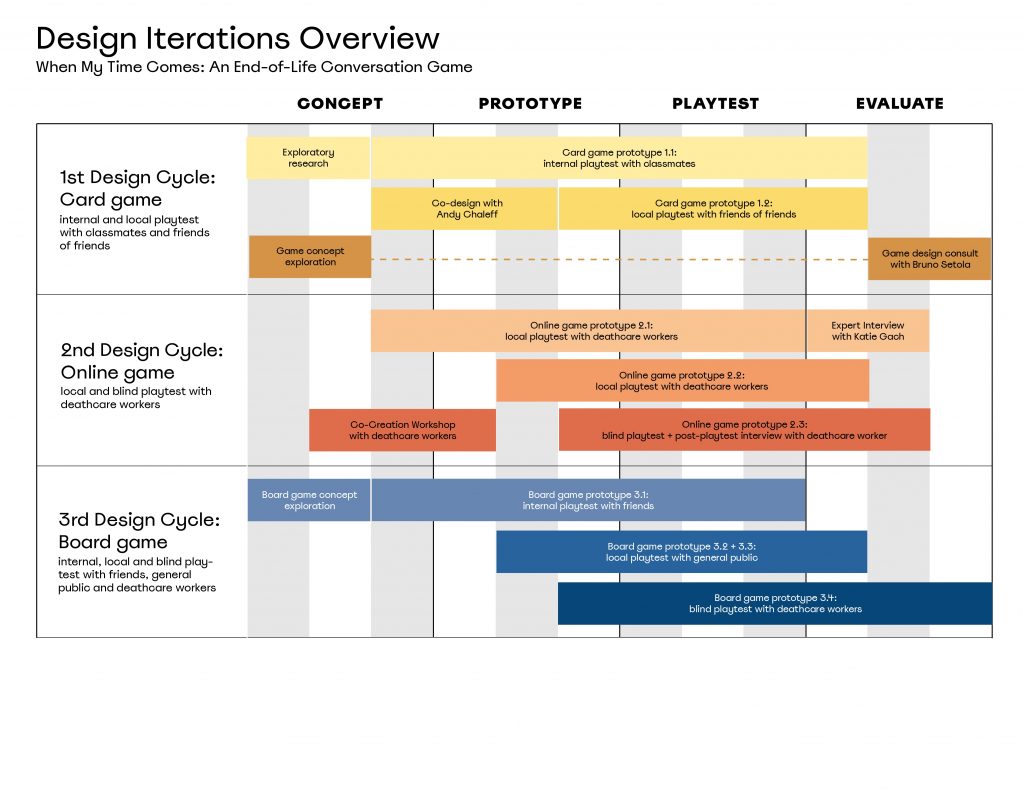
The new practice
When My Time Comes: An End-of-Life Conversation Game is the final prototype of the game that is presented in her research. It is designed as a 3 – 6 player, collaborative, card-driven, and token-collecting board game that offers individuals, families, and communities a lighthearted and connective way to talk about the end-of-life. Players journey together towards one of the three endpoints in the game while collecting special tokens such as “The Storyteller”, “The Consultant”, “The Creative”, or “The Caregiver” by offering fellow players specific feedback that may help them find clarity in their end-of-life wishes.
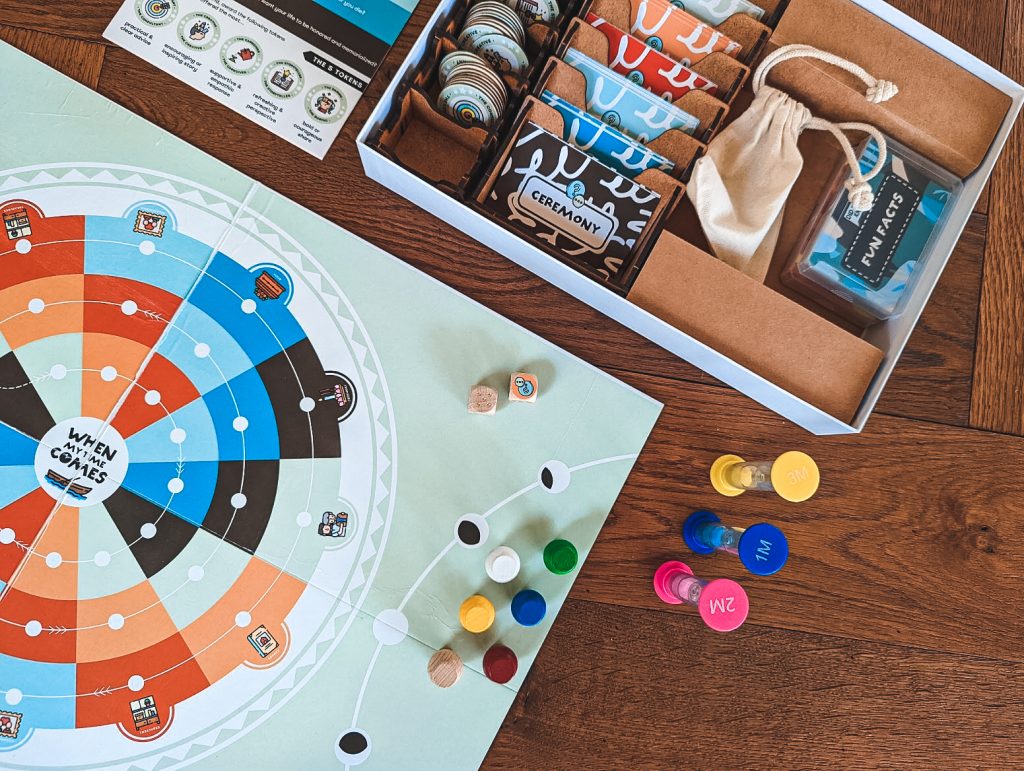
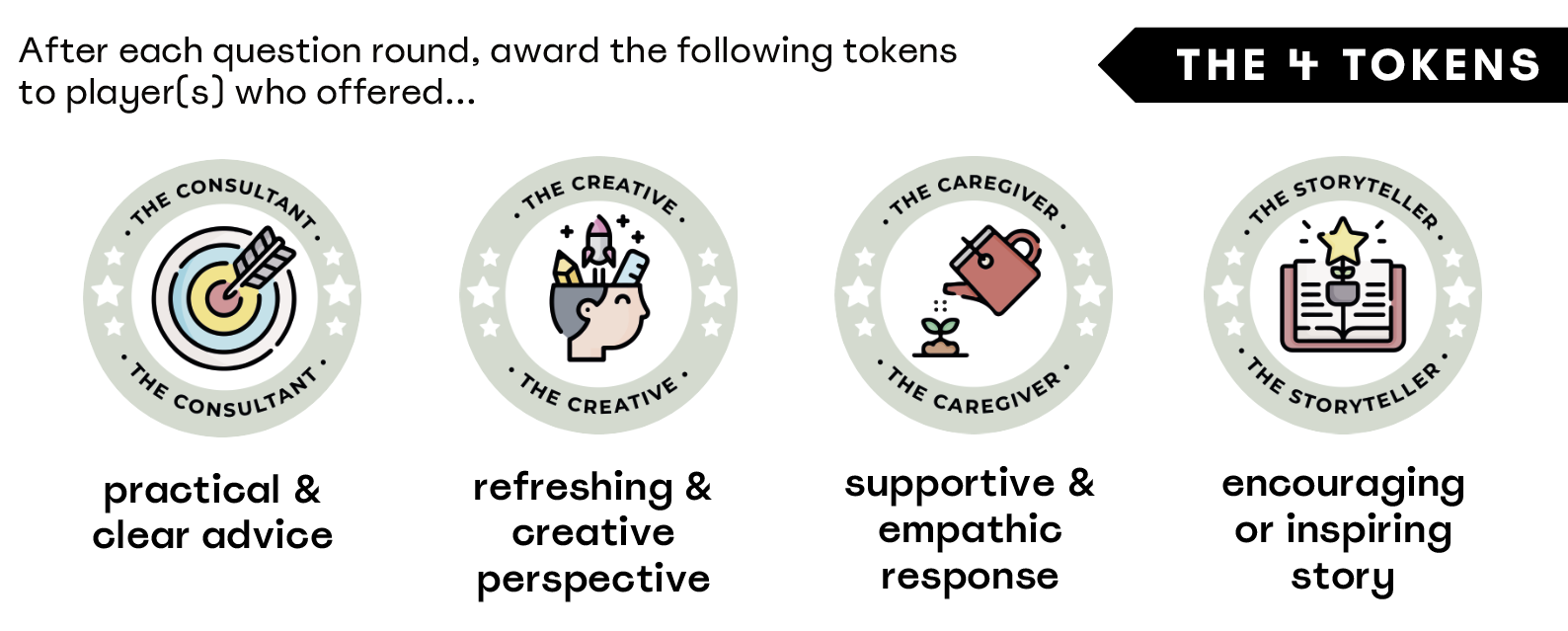
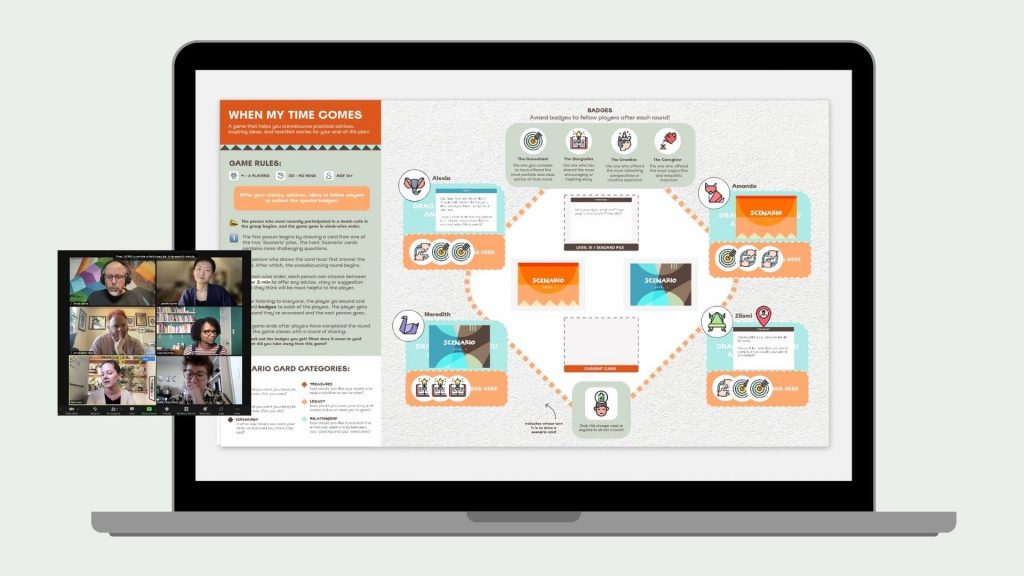
The game also exists as an online game making it more versatile for different contexts of use.
the designer
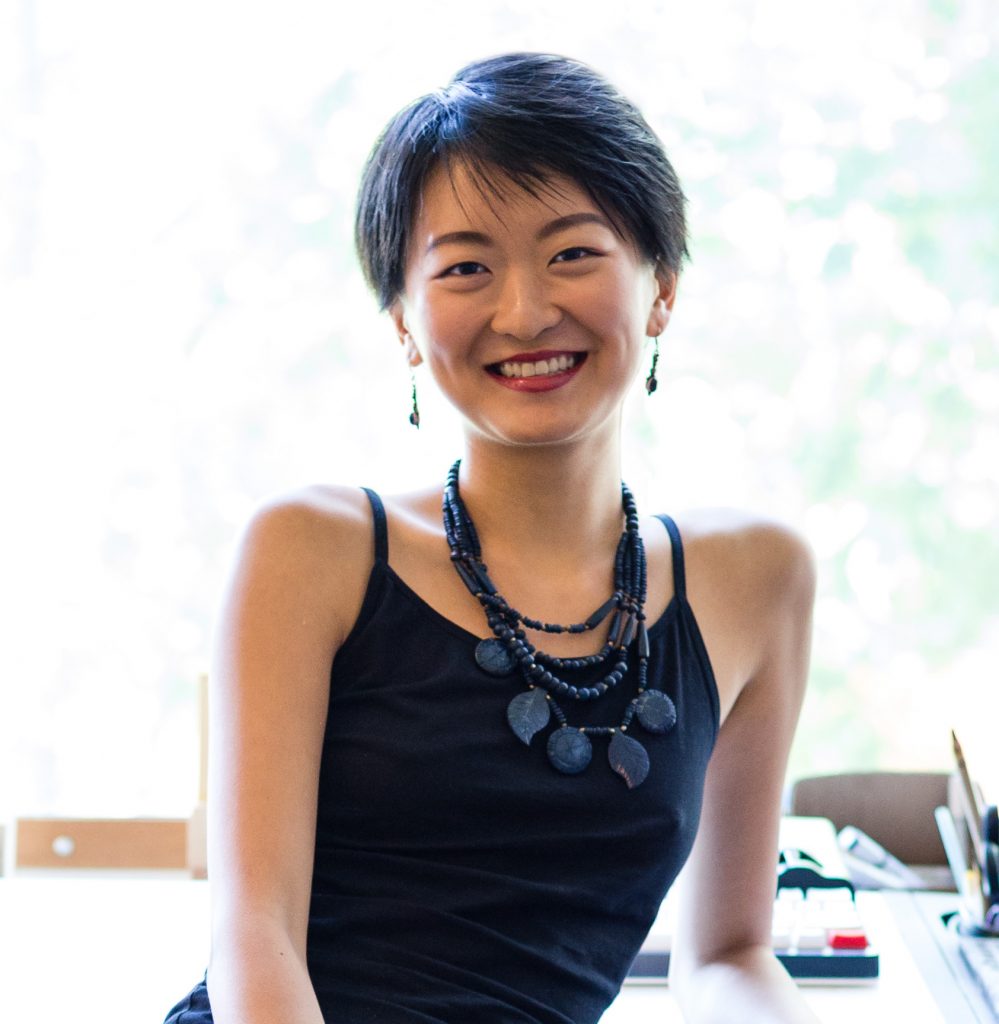
Jennifer is a game thinker and design researcher who is passionate about designing for social innovation. Through her work, she explores how games can be used as tools for understanding, empathy, and social change. Her design approach is characterized as personal, iterative, and participatory and is especially evident in her latest project “When My Time Comes: An End-of-Life Conversation Game” – an applied game developed alongside deathcare professionals that offer families and communities an emotionally-connective and holistic way to discuss their end-of-life wishes.
Originally from Hong Kong, Jennifer studied and lived in the United States for 10 years before moving to the Netherlands in 2017. She has published 2 games and been a part of the development of numerous applied game projects, including most recently, the award-winning “Beyond Design: the Game of Social Solutions” with Studio Renate Boere. Next to developing her projects, Jennifer currently works as an associate for Playspace (playspace.cc) where she occasionally teaches and facilitates Game Thinking workshops alongside the founder Bruno Setola.
Jennifer aims to continue her exploration of how game design-informed approaches and methodologies may benefit research in the social context and in improving our collective wellbeing.
She welcomes anyone who would like to collaborate and is currently looking for further ways to share her research project with the world.
If you wish to connect, please contact her through her email: jennkumer@gmail.com




